Notes
- ↑ Jackson, Alvin: Home Rule: An Irish History 1800—2000 pp.31-32, Phoenix Press (2003) ISBN 0-75381-767-5
Home Government Association | |
|---|---|
| Founded | 1870 |
| Dissolved | 1873 |
| Succeeded by | Home Rule League |
| Ideology | Irish nationalism Home Rule |
| Colours | Green |
The Home Government Association was a pressure group launched by Isaac Butt in support of home rule for Ireland at a meeting in Bilton's Hotel, Dublin, on 19 May 1870.
The meeting was attended or supported by sixty-one people of different political and religious persuasions, including six Fenians, Butt seemingly having consulted with the Irish Republican Brotherhood before launching his initiative. [1]
Its inaugural public meeting was held on 1 September 1870. Active in campaigning in several elections for the association was P. F. Johnson.
It became the Home Rule League in 1873.
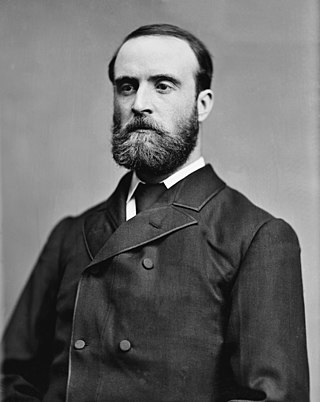
Charles Stewart Parnell was an Irish nationalist politician who served as a Member of Parliament (MP) from 1875 to 1891, also acting as Leader of the Home Rule League from 1880 to 1882 and then Leader of the Irish Parliamentary Party from 1882 to 1891. His party held the balance of power in the House of Commons during the Home Rule debates of 1885–1886.
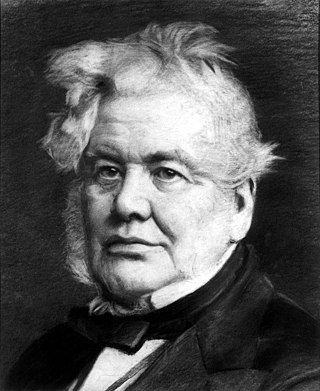
Isaac Butt was an Irish barrister, editor, politician, Member of Parliament in the House of Commons of the United Kingdom, economist and the founder and first leader of a number of Irish nationalist parties and organisations. He was a leader in the Irish Metropolitan Conservative Society in 1836, the Home Government Association in 1870, and the Home Rule League in 1873. Colin W. Reid argues that Home Rule was the mechanism Butt proposed to bind Ireland to Great Britain. It would end the ambiguities of the Act of Union of 1800. He portrayed a federalised United Kingdom, which would have weakened Irish exceptionalism within a broader British context. Butt was representative of a constructive national unionism. As an economist, he made significant contributions regarding the potential resource mobilisation and distribution aspects of protection, and analysed deficiencies in the Irish economy such as sparse employment, low productivity, and misallocation of land. He dissented from the established Ricardian theories and favoured some welfare state concepts. As editor he made the Dublin University Magazine a leading Irish journal of politics and literature.

Irish nationalism is a nationalist political movement which, in its broadest sense, asserts that the people of Ireland should govern Ireland as a sovereign state. Since the mid-19th century, Irish nationalism has largely taken the form of cultural nationalism based on the principles of national self-determination and popular sovereignty. Irish nationalists during the 18th, 19th, and 20th centuries such as the United Irishmen in the 1790s, Young Irelanders in the 1840s, the Fenian Brotherhood during the 1880s, Fianna Fáil in the 1920s, and Sinn Féin styled themselves in various ways after French left-wing radicalism and republicanism. Irish nationalism celebrates the culture of Ireland, especially the Irish language, literature, music, and sports. It grew more potent during the period in which all of Ireland was part of the United Kingdom, which led to most of the island gaining independence from the UK in 1922.
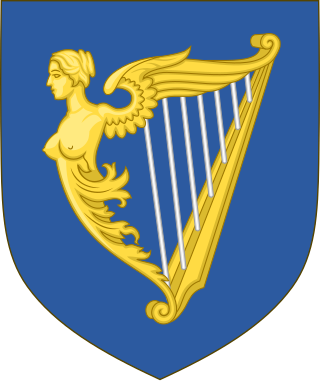
The Irish Parliamentary Party was formed in 1874 by Isaac Butt, the leader of the Nationalist Party, replacing the Home Rule League, as official parliamentary party for Irish nationalist Members of Parliament (MPs) elected to the House of Commons at Westminster within the United Kingdom of Great Britain and Ireland up until 1918. Its central objectives were legislative independence for Ireland and land reform. Its constitutional movement was instrumental in laying the groundwork for Irish self-government through three Irish Home Rule bills.

The Home Rule League (1873–1882), sometimes called the Home Rule Party, was an Irish political party which campaigned for home rule for Ireland within the United Kingdom of Great Britain and Ireland, until it was replaced by the Irish Parliamentary Party. The Home Rule Confederation of Great Britain was a sister organisation in Great Britain.
The Nationalist Party was a term commonly used to describe a number of parliamentary political parties and constituency organisations supportive of Home Rule for Ireland from 1874 to 1922. It was also the name of the main Irish nationalist Nationalist Party in Northern Ireland from 1921 to 1978.
The Catholic Union was a political organisation in Ireland in the 1870s. It was the brainchild of Paul Cullen, Roman Catholic Archbishop of Dublin and future Irish cardinal. He created it in 1872 to link growing public interest in politics and Irish nationalism with a Catholic agenda. It was his second attempt to create a Church-orientated political party, following the collapse and failure of his first such organisation, the National Association.
The Irish Metropolitan Conservative Society was an Irish political movement based in Dublin which was linked to the Irish Conservative Party, the main political party in Ireland until 1859.
The Irish Conservative Party, often called the Irish Tories, was one of the dominant Irish political parties in Ireland in the 19th century. It was affiliated with the Conservative Party in Great Britain. Throughout much of the century it and the Irish Liberal Party were rivals for electoral dominance among Ireland's small electorate within the United Kingdom of Great Britain and Ireland, with parties such as the movements of Daniel O'Connell and later the Independent Irish Party relegated into third place. The Irish Conservatives became the principal element of the Irish Unionist Alliance following the alliance's foundation in 1891.
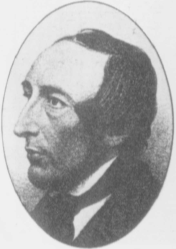
John Martin was an Irish nationalist activist who shifted from early militant support for Young Ireland and Repeal, to non-violent alternatives such as support for tenant farmers' rights and eventually as the first Home Rule MP, for Meath 1871–1875.
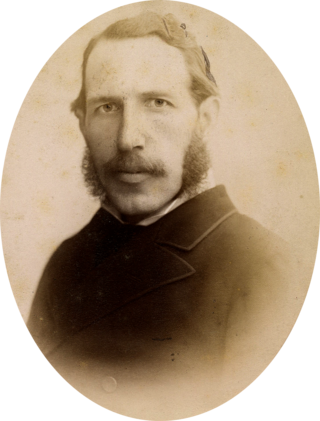
John O'Connor Power was an Irish Fenian and a Home Rule League and Irish Parliamentary Party politician and as MP in the House of Commons of the United Kingdom of Great Britain and Ireland represented Mayo from June 1874 to 1885. From 1881, he practised as a barrister specialising in criminal law and campaigning for penal reform.
Major Lawrence Edward Knox(1836–1873) was a British Army officer and founder of The Irish Times. He was born in the Kemp Town area of Brighton in East Sussex, England. His parents were Arthur Edward Knox of Castlereagh, near Killala, County Mayo, and Jane Parsons, daughter of Laurence Parsons, 2nd Earl of Rosse.
The term New Departure has been used to describe several initiatives in the late 19th century by which Irish republicans, who were committed to independence from Britain by physical force, attempted to find a common ground for co-operation with groups committed to Irish Home Rule by constitutional means. In the wake of the Fenian Rising of 1867 and the unpopular executions which followed it, Fenianism was popularised and became more moderate, while the Home Rule movement was edging toward radicalism at the same time, laying the framework for the alliance. The term was coined by John Devoy in an anonymous article in the New York Herald on 27 October 1878 in which he laid out a framework for a new policy.

Jeremiah JordanJ.P. was an Irish nationalist politician from County Fermanagh. He was a Member of Parliament (MP) from 1885 to 1892, and from 1893 to 1910, taking his seat in the House of Commons of the United Kingdom of Great Britain and Ireland.
Sir Joseph Neale McKenna was an Irish banker and politician whose career extended from the elite home rule politics of the mid-nineteenth century to the fall of Charles Stewart Parnell, whom he supported in later years.
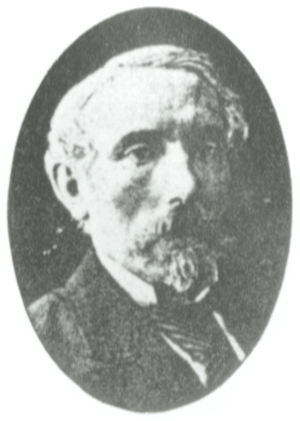
Patrick James Smyth, also known as Nicaragua Smyth, was an Irish politician and journalist. A Young Irelander in 1848, and subsequently a journalist in American exile, from 1871 he was an Irish Home Rule Member of the United Kingdom Parliament for Westmeath and from 1880 for Tipperary.
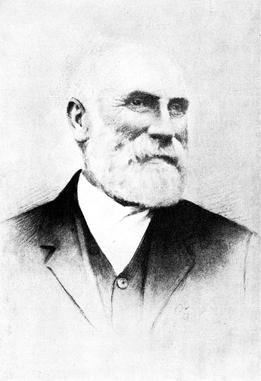
Andrew Joseph Kettle (1833–1916) was a leading Irish nationalist politician, progressive farmer, agrarian agitator and founding member of the Irish Land League, known as 'the right-hand man' of Charles Stewart Parnell. He was also a much admired old friend of the nationalist politician, Frank Hugh O'Donnell, and the poet and novelist Katharine Tynan.

The Irish Home Rule movement was a movement that campaigned for self-government for Ireland within the United Kingdom of Great Britain and Ireland. It was the dominant political movement of Irish nationalism from 1870 to the end of World War I.
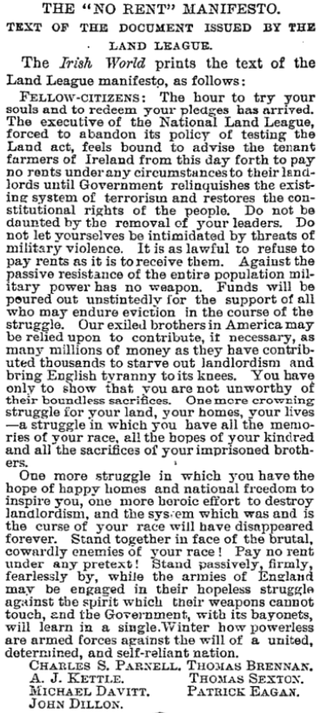
The No Rent Manifesto was a document issued in Ireland on 18 October 1881, by imprisoned leaders of the Irish National Land League calling for a campaign of passive resistance by the entire population of small tenant farmers, by withholding rents to obtain large rent abatements under the Land Law (Ireland) Act 1881. The intention being to "put the Act to the test" and prove its inadequacy to provide for the core demands of the tenants – the 'three Fs' of fair rent, fixity of tenure and free sale – as well as providing sufficient funds for occupier purchase.
Philip Francis Johnson, usually known as P. F. Johnson was an Irish nationalist political labour activist and Kanturk hotel proprietor. Born at Mallow, County Cork, he co-founded in 1869 the Kanturk Labourers’ Club, where he was lifelong committed to the well-being of labourers in the Munster region. He had close Fenian connections and was active in the Land League. Although an anti-Parnellite he supported the Irish National League with a branch in Kanturk.